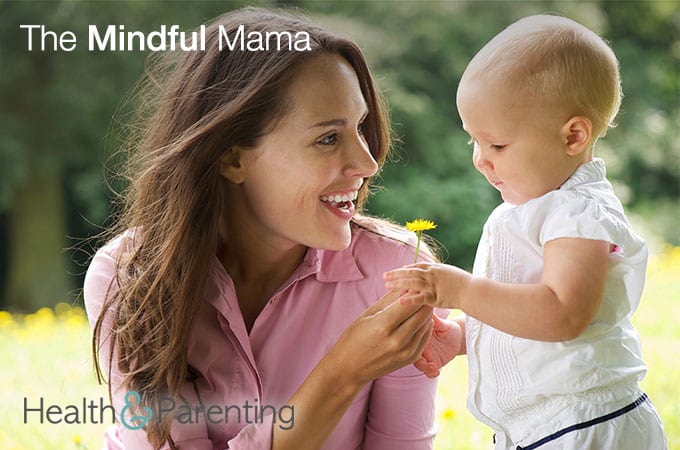What is mindfulness?
Mindfulness is bringing ones full attention to the present moment. Mindfulness in parenting means paying close attention to what’s happening here and now rather than thinking about down-the-road outcomes. While it doesn’t mean you are allowing your child to run free without consequences, it does mean that you are recognizing moment-to-moment thoughts and feelings without judging yourself or your child. Once you see the actions for what they are, you can move to more authentically resolving any problems.
Practicing mindfulness allows you to truly focus on your child’s unique needs, rather than getting caught up in reacting to behaviors. You are then able to let go of the way things should be and instead accept the way things are.
What are the benefits?
Mindfulness has been shown to alleviate anxiety, lessen depression, decrease substance abuse, and reduce reactivity to stress. When mothers use mindfulness in their interactions with their children, they feel empowered as parents and emotionally connected with their kids. They are less troubled by developmentally appropriate behaviors, and are less stressed overall.
Children learn from their parents’ behaviors, and those who are parented mindfully tend to learn mindfulness easily. Mindfulness decreases behavioral problems and substance use, as well as increases a sense of self-control and well-being.
How to be more mindful:
Mindfulness takes practice, and nobody is perfect all the time. As long as you are striving to improve your reactions and interactions, you are winning at the mindfulness game.
- Learn more about it: There are books, web pages, workbooks, blogs, Twitter feeds, etc. all geared toward mindful living. In addition to learning what mindfulness is, take time to practice every single day – even if it’s just for 5 minutes. There are loads of ways to teach kids to tune in – they are probably better at it than us (have you ever tried to get a toddler to stop focusing on playing when it’s time to go?).
- Tune in to your self talk: We are often our own worst critics. Accepting yourself is the first step in accepting your children as individuals. Tune in to your thinking about yourself and others. Are you constantly judging? Practice sitting quietly and thinking of nothing. As soon as you start to judge something, set the thought aside and once again focus on your breath, your present moment, what is happening in the immediate world around you. Over time, this practice will help you stop judging yourself and others, and allow you instead to forge strong relationships. When our children see us being kind to ourselves and others, they can’t help but learn.
- Reacting vs. responding: Do you find yourself reacting to your child’s behavior because of preconceived notions of the way things should be? Who sets those rules? Are they true for everyone and every family? By responding to your child in ways that are appropriate to his own unique personality and needs, you will create a relationship based on understanding and learning rather than fear of punishment.
- Un-schedule: Have some downtime every day – for you and for your child. When we’re always running from one activity to the next, we lose sight of whether or not those activities are enriching us or draining us.
- Practice stress management: Learn how to actively lower your stress level when you’re feeling the strain of parenting or just of life. Two helpful tools:
- STOP: Stop what you’re doing, Take a breath, Observe how you feel and what is happening (without judgment), and Proceed to action but much more attuned and mindful.
- HALT: Am I Hungry? Am I Angry? Am I Lonely? Am I Tired? Just stopping what you’re doing and tuning in to what you’re feeling without judging it right or wrong will help you move on with thoughtfulness. This little phrase is helpful when you’re child is having a meltdown, too. Simply assess your child’s emotions and basic needs to make sure his tank is full.
- Be good enough – Let go of being the ‘the perfect mom’ and instead be a mom whose imperfections are accepted. When your children see that failures are only temporary setbacks and are not a sign of bad character, they learn that it’s OK to be imperfect.
Written by Michelle, childbirth instructor, lactation consultant, and mother to 4 busy kids
This information is not intended to replace the advice of a trained medical doctor. Health & Parenting Ltd disclaims any liability for the decisions you make based on this information, which is provided to you on a general information basis only and not as a substitute for personalized medical advice. All contents copyright © Health & Parenting Ltd 2016. All rights reserved.











